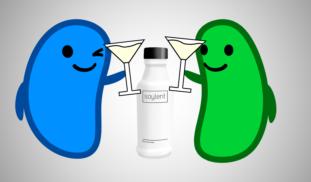Please wait...
About This Project
As students carry out their busy lifestyles, many are turning to inexpensive and convenient drink based meal-alternatives, such as Soylent, to supplement or replace their regular diets. These meal alternatives are designed to fulfill the nutritional needs of a human, but the impact on the microbiome remain unknown. This project aims to track the composition of participant's microbiome before, during, and after Soylent use to more holistically understand Soylent's impact on microbiome health.
More Lab Notes From This Project

Browse Other Projects on Experiment
Related Projects
Disrupting cancer cell signaling through drug discovery
Most cancer-related deaths are caused by metastasis, the spread of cancer cells to distant tissues. This...
CaniSense– AI-powered blood test for early cancer detection in dogs
Cancer is the leading cause of death in dogs, yet no reliable methods for early screening exist. At testblu...
Shutting down cancer’s recycling system with exosome-based therapy
Pancreatic cancer is one of the deadliest cancers because its cells survive by recycling their own components...





